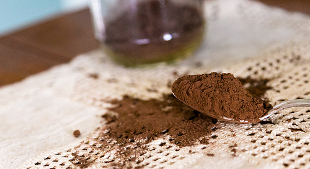 FLICKR, CART-WHEELSMicrobes like Bifidobacterium and lactic acid bacteria that reside in the human gut “feast on chocolate,” said Louisiana State University’s Maria Moore, an undergraduate student who assisted on a research that examined the effects of dark chocolate on gut bacteria, in a statement released at the American Chemical Society’s annual meeting being held in Dallas, Texas, this week. “When you eat dark chocolate, [these bacteria] grow and ferment it, producing compounds that are anti-inflammatory,” Moore added.
FLICKR, CART-WHEELSMicrobes like Bifidobacterium and lactic acid bacteria that reside in the human gut “feast on chocolate,” said Louisiana State University’s Maria Moore, an undergraduate student who assisted on a research that examined the effects of dark chocolate on gut bacteria, in a statement released at the American Chemical Society’s annual meeting being held in Dallas, Texas, this week. “When you eat dark chocolate, [these bacteria] grow and ferment it, producing compounds that are anti-inflammatory,” Moore added.
In in vitro experiments meant to model the human digestive tract, LSU food scientist John Finley’s team tested three cocoa powders, subjecting the substances to anaerobic fermentation using human fecal bacteria. The researchers found that, within the mock gut, the cocoa’s fiber content “is fermented and the large polyphenolic polymers are metabolized to smaller molecules, which are more easily absorbed,” Finley said in the statement. They also found that the smaller molecules “exhibit anti-inflammatory activity.” And gut microbes could help reduce a person’s feeling of hunger after having digested cocoa. “The microbes break down the fiber into short fatty chain acids, which get absorbed and can have an effect on satiety,” Finley told NPR’s The Salt blog.
The researchers have yet to confirm their results ...





















